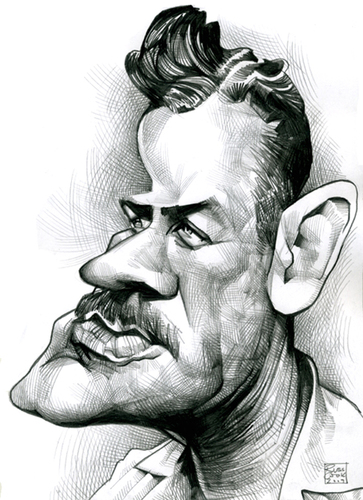 |
| Steinbeck |
When the comedian Fred Allen asked Steinbeck's advice on writing an autobiography, the master replied:
Don't start by trying to make the book chronological. Just take a period. Then try to remember it so clearly that you can see things: what colors and how warm or cold and how you got there. Then try to remember people. And then just tell what happened. It is important to tell what people looked like, how they walked, what they wore, what they ate. Put it all in. Don't try to organize it. And put in all the details you can remember.Steinbeck echoed this advice in one of his final interviews: "Write freely and as rapidly as possible and throw the whole thing on paper. Never correct or rewrite until the whole thing is down. Rewrite in process is usually found to be an excuse for not going on."
You will find that in a very short time things will begin coming back to you, you thought you had forgotten. Do it for very short periods at first, but kind of think of it when you aren't doing it. Don't think back over what you have done. Don't think of literary form. Let it get out as it wants to. Over tell it in the manner of detail--cutting comes later. The form will develop in the telling. Don't make the telling follow a form.
No comments:
Post a Comment